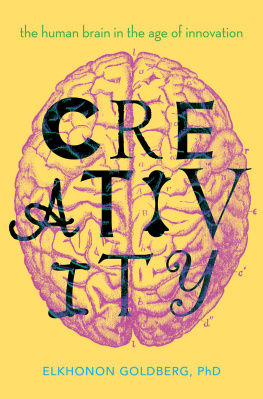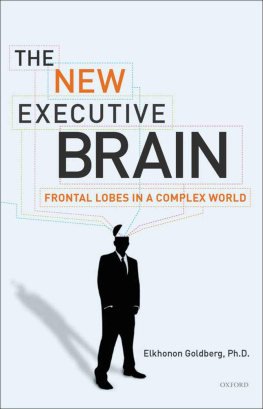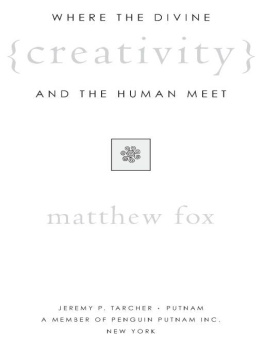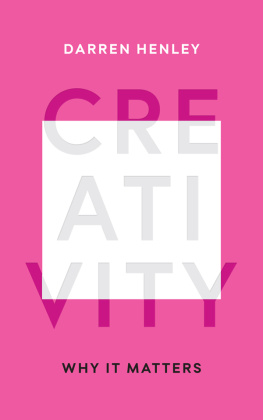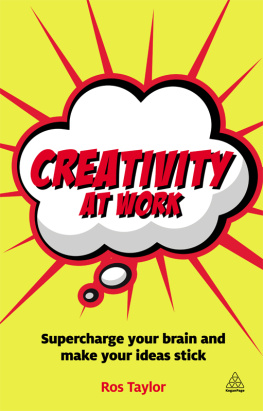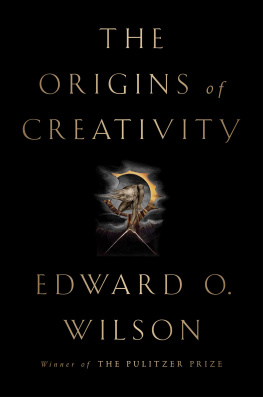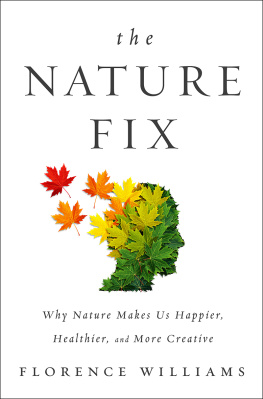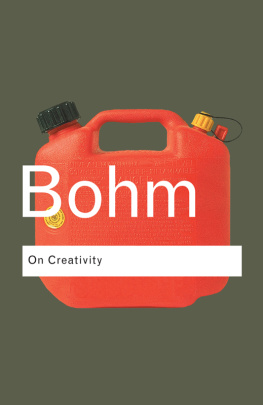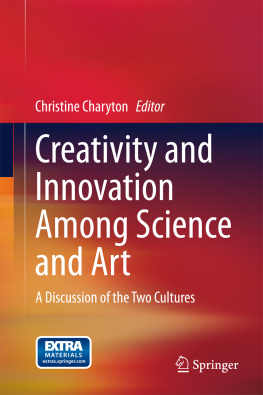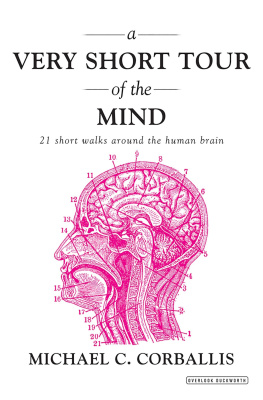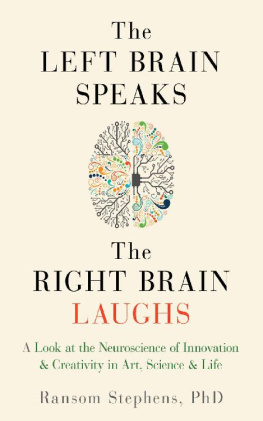Advance Praise for Creativity
Countless contributions have dealt with the psychological, socio-cultural, cognitive, evolutionary aspects of creativity. The neuroanatomical and physiological aspects have been explored to a limited extent: which is odd, as creativity is the product of brains activity. Elkhonon Goldbergs book has the brain as its undisputed main character; this makes it uniquely important. The role of the brains physiology and anatomy in the generation of creativity, with the frontal lobe and the prefrontal cortex in the privileged position, are discussed exhaustively and masterfully. Goldberg spices the discussions with his experiences as a young neuroscientist in the Soviet Union to deal with important, but lesser known, aspects of creativity. This book is written with great literary skill, making reading it really enjoyable. Goldberg is a first rate neuroscientist and a born writer.
Ernesto Carafoli, MD, Venetian Institute of Molecular Medicine, University of Padova, Italy
Creativity, that most charismatic of human mysteries, cant be reduced into the action of a few simple brain processors. In Creativity, Elkhonon Goldberg, a pioneer in research into novelty and routine in the brain, and one of the greatest integrative thinkers in modern neuroscience, is subtle, judicious, relentlessly curious, fun and brutally honest about what neuroscience knows, and doesnt know, about the subject. He guides us through decades of research, to show that perhaps the most striking thing about our plastic organ of creativity, is that, while there are certain basic patterns in the creative brain, they are only starting points; the brains circuitry, being so plastic, likely has just as many different ways of helping to produce creative states, as there are human ways of being creative. No one interested in the neuroscience of creativity can afford to miss this book.
Norman Doidge, MD, author of The Brain That Changes Itself and The Brains Way of Healing, Toronto, Canada
As a former copywriter and Worldwide Creative Director of a large international advertising company, my days were spent trying to control and direct the creative efforts. There was no manual to refer to, we had to be creative. After reading Dr. Goldbergs new book, I realize we had no understanding of what that really meant. There is so much in here I wish I could have accessed and was unsettled by the accurate description of the mental ping pong game which I have unconsciously employed throughout my career. Dr. Goldberg has obviously travelled extensively and his observations and experiences seem like a beautifully written journey in themselves until he leads one to the point where he reveals even more involving aspects of creativity in other cultures and even species. As far as this book is concerned, Dr. Goldberg clearly knows what hes doing when it comes to Creativity.
John Fawcett, Creative Director, Balucate, Sydney, Australia
What an inspired marriage of Creativity and Neuroscience (big C, big N), officiated by a brave scientist and original thinker. This book will spark new research, new toolkits, new conversationsand much creativity.
Alvaro Fernandez, MBA, MA, CEO & Editor-in-Chief of SharpBrains, Washington, DC
Elkhonon Goldbergs new book, Creativity: The Human Brain in the Age of Innovation is a very insightful study of our brains in a time of accelerating and multi-dimensional change. It is the fruit of both scholarly research and many decades of experience. He explores several key concepts: Salience, how does our brain determine what is of real importance and relevance and put it ahead of the neural line? Hyperfrontality-Hypofrontality, our brains going through intense engagement with a problem and then the Aha moment comes during sleep or when taking a walk. Small-world networks, whose strong connectivity with each other leads to new and surprising insights and solutions. Creativity is a wonderful addition to Dr. Goldbergs body of work.
Bienvenido F. Nebres, National Scientist, Professor of Mathematics, Past-President of Ateneo de Manila University, Manila, Philippines
Elkhonon Goldberg, PhD, a leading-edge neuropsychologist and broad-ranging thinker, has provided a brilliant, synthetic account of human creativity. A sophisticated understanding of brain function is combined with insights from contemporary psychology, evolutionary biology, and cross-cultural studies to elucidate the key processes underlying innovation in the arts, sciences and all areas of human endeavor. Indeed, Goldberg says that creativity is not a unitary phenomenon, and many different neural functions and network interactions coordinate to produce and appreciate novel, meaningful thoughts and acts. How and why this all comes together, and what it means for our species and its future, are just a few of the big issues addressed in this masterful and engaging book.
David Silbersweig, MD, Co-Director, Neuroscience Center and Professor of Psychiatry, Brigham and Womens Hospital, Harvard Medical School, Boston, MA
Creativity
Also by Elkhonon Goldberg
The Executive Brain: Frontal Lobes and the Civilized Mind
(Oxford University Press, December 2002)
The Wisdom Paradox: How Your Mind Can Grow Stronger
As Your Brain Grows Older
(Gotham Books, February 2006)
The New Executive Brain: Frontal Lobes in a Complex World
(Oxford University Press, August 2009)

Oxford University Press is a department of the University of Oxford. It furthers the Universitys objective of excellence in research, scholarship, and education by publishing worldwide. Oxford is a registered trade mark of Oxford University Press in the UK and certain other countries.
Published in the United States of America by Oxford University Press
198 Madison Avenue, New York, NY 10016, United States of America.
Elkhonon Goldberg 2018
All rights reserved. No part of this publication may be reproduced, stored in a retrieval system, or transmitted, in any form or by any means, without the prior permission in writing of Oxford University Press, or as expressly permitted by law, by license, or under terms agreed with the appropriate reproduction rights organization. Inquiries concerning reproduction outside the scope of the above should be sent to the Rights Department, Oxford University Press, at the address above.
You must not circulate this work in any other form and you must impose this same condition on any acquirer.
Library of Congress Cataloging-in-Publication Data
Names: Goldberg, Elkhonon, author.
Title: Creativity : the human brain in the age of innovation / by Elkhonon Goldberg.
Description: New York, NY : Oxford University Press, [2018] | Includes bibliographical references and index.
Identifiers: LCCN 2017008677 | ISBN 9780190466497 (alk. paper) | ISBN 9780190466510 (epub)
Subjects: | MESH: Brainphysiology | Creativity
Classification: LCC QP376 | NLM WL 300 | DDC 612.8/2dc23
LC record available at https://lccn.loc.gov/2017008677
This material is not intended to be, and should not be considered, a substitute for medical or other professional advice. Treatment for the conditions described in this material is highly dependent on the individual circumstances. And, while this material is designed to offer accurate information with respect to the subject matter covered and to be current as of the time it was written, research and knowledge about medical and health issues is constantly evolving and dose schedules for medications are being revised continually, with new side effects recognized and accounted for regularly. Readers must therefore always check the product information and clinical procedures with the most up-to-date published product information and data sheets provided by the manufacturers and the most recent codes of conduct and safety regulation. The publisher and the authors make no representations or warranties to readers, express or implied, as to the accuracy or completeness of this material. Without limiting the foregoing, the publisher and the authors make no representations or warranties as to the accuracy or efficacy of the drug dosages mentioned in the material. The authors and the publisher do not accept, and expressly disclaim, any responsibility for any liability, loss or risk that may be claimed or incurred as a consequence of the use and/or application of any of the contents of this material.

